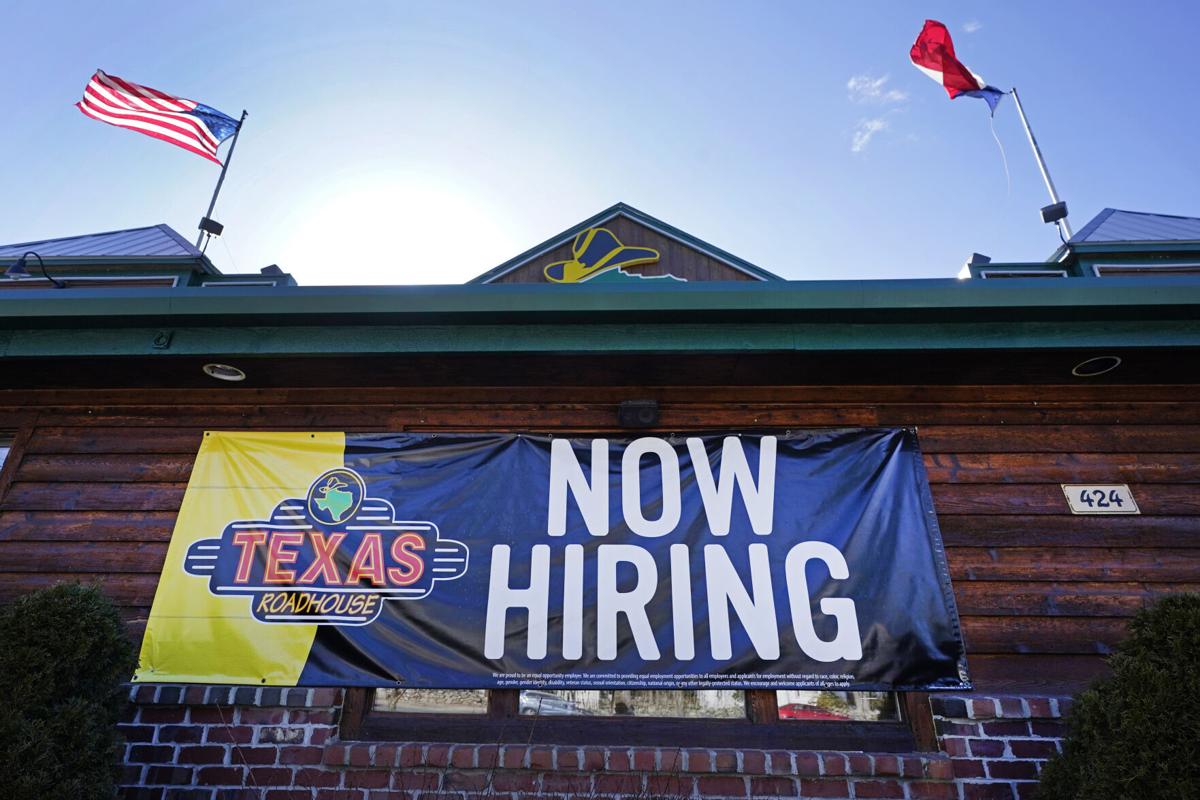PHOENIX — State lawmakers are moving to cut the time Arizonans can collect jobless benefits — even when unemployment hits double digits.
The Senate on Wednesday gave preliminary approval to setting the maximum length of payments for those looking for work at no more than 12 weeks at any time the state’s seasonally adjusted jobless rate has been 5% or less for the prior quarter. That’s half of the up to 24 weeks currently allowed when the unemployment rate is that low.
That also would apply now, with the jobless rate here in the 4% range.
More dramatic are the changes for periods of higher unemployment.
Now, a jobless rate of at least 5% qualifies those who are out of work through no fault of their own to up to 26 weeks.
The measure pushed through the Senate by Sen. Steve Kaiser, R-Phoenix, instead sets up a graduated benefit schedule, adding an additional week of benefits beyond the 12-week base for every half-point the unemployment rate rises. But even at that, SB 1167 caps benefits at 20 weeks even if the jobless rate tops 8.5%, six weeks shorter than now.
That unemployment figure is not farfetched.
Arizona’s jobless rate topped that in early 2012. And it even rose above 11 percent — meaning that one out of every 9 people looking for work could not find a job — during the height of the last recession.
What’s behind the move is Kaiser’s contention that there are jobs to be filled but people out of work and collecting unemployment who are not applying for them. In fact, he said there are 10 open jobs for every applicant, suggesting that they are not applying because they are collecting up to the $320 a week the state provides in benefits.
That number is at sharp difference to the official numbers from the federal Bureau of Labor Statistics which shows about 213,000 job openings in December, the most recent month available, and about 148,000 people looking for work.
But Kaiser said he is basing the number on the smaller number of 22,656 people who are actually applying for, or collecting unemployment insurance in Arizona.
Arizona law allows those workers who are laid off or fired for no reason to collect up to one-half of what they were earning while they look for new work. But it is capped at no more than $320 a week, no matter how much they were earning before, and with the 24- or 26-week cap depending on the state’s jobless rate.
Kaiser said he sees the current level of benefits as unnecessary.
“If there are plentiful jobs out there, the unemployment insurance benefit timelines should be shorter,” he told colleagues during floor debate on Wednesday. And Kaiser pointed out that Arizona has a voter-imposed $13.85-an-hour minimum wage, which over a 40-hour week translates out to more than unemployment benefits.
The idea drew questions from Rep. Mitzi Epstein, D-Tempe. She asked who benefits from the change.
“Getting a job benefits the individual and their family,” Kaiser responded. Epstein sniffed at that response.
“That’s a new piece of information to me that yanking benefits away from somebody helps them to get a job faster,” she said. But Epstein said that still doesn’t answer her question of who is promoting the idea.
Kaiser said he could not recall the name of the group.
But the measure was pushed in the Senate Government Committee by Brian Sikma, a lobbyist for the Foundation for Government Accountability, which lists its purpose as advancing policies to move individuals from welfare to work. He testified that states that set up an indexed jobless benefit system — with the length of benefits linked to unemployment — get people back to work faster.
Epstein said she remains unconvinced.
“Unemployment insurance is a bridge for the individual and it’s important for stability in the economy,” she said, asking Kaiser whether he had worked with any economists to assess the global effects of such a change.
“I did not work with any economists,” he acknowledged.
“However, it’s pretty basic to understand that if you have a job, even a minimum wage job, that you’re going to be earning more than the unemployment insurance benefits,” Kaiser said. “So you’ll actually be doing better for yourself and your family having even a minimum wage job versus what the state will provide.”
And Kaiser said that it is the state’s taxpayers who pick up the cost of these benefits.
That wrong.
Payments come from a special fund which is financed by a levy paid by employers on the first $8,000 of each worker’s salary.
The actual tax rate is based on how often a company’s workers end up being found eligible for benefits. Rates range from as low as 0.07% for firms with low usage to as high as 18.78% for companies which have a high number of employees who are laid off or fired for no reason of their own.
New employers are charged a presumptive rate of 2.0%.
Kaiser said there’s another indirect benefit to encouraging people to take any job that’s available.
“When you have a job that’s the best way to find the next job,” he said.
“In theory, yes,” agreed Sen. Brian Fernandez, D-Yuma.
“But the problem is the job doesn’t just magically appear,” he said. And Fernandez said that a lot is involved in applying for jobs in the high tech industry, including a battery of interviews and tests.
“It’s not like you just drop an application off someplace and they call you up and say, ‘Congratulations, we really like you, you’re hired,’ “ he said.
Kaiser, however, said many of the minimum wage jobs out there have enough flexibility in their schedules to permit people seeking other work to take time off as needed.
A final Senate vote will send the measure to the House.
Get your morning recap of today's local news and read the full stories here: tucne.ws/morning





